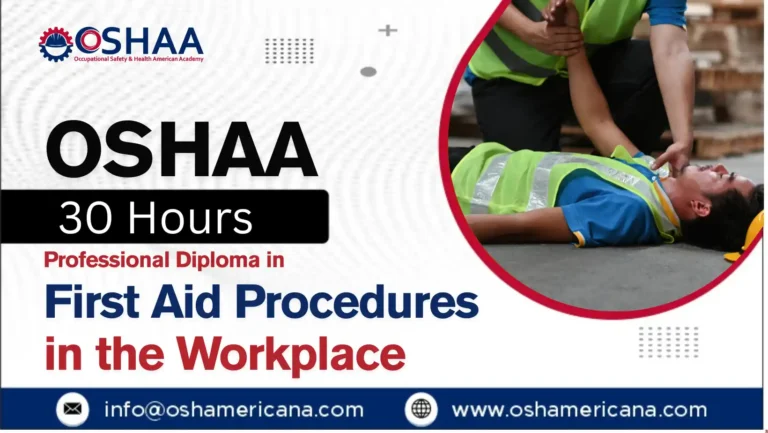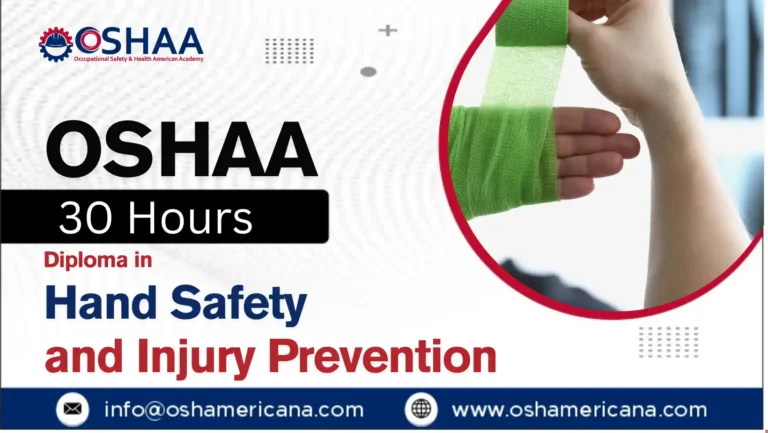In recent years, the importance of early speech and language development has become more widely recognised. Speech and language difficulties can significantly impact a child’s educational performance, social interactions, and overall development. This is where speech therapy plays a vital role in helping children overcome these challenges. The OSHAA 30-Hours Professional Diploma in Speech Therapy for Children is designed to equip professionals with the essential skills and knowledge to support children experiencing speech and language difficulties.
This professional diploma is perfect for individuals who are passionate about making a difference in the lives of children. It offers a comprehensive, flexible, and structured learning experience that covers various aspects of speech and language development. Whether you are already working in a related field or are looking to pursue a career in speech therapy, this course will provide you with a robust foundation in speech therapy techniques, assessments, and intervention strategies.
The OSHAA 30-Hours Professional Diploma in Speech Therapy for Children is an intensive and practical course designed to help professionals understand the complexities of speech and language development in children. The course covers the key theories, methodologies, and interventions that are commonly used in speech therapy for children. Additionally, it offers participants practical guidance on how to assess, diagnose, and support children with speech and language disorders.
If you’re passionate about helping children develop their communication skills and overcome speech and language challenges, the OSHAA 30-Hours Professional Diploma in Speech Therapy for Children is the perfect course for you. With expert-led instruction, practical insights, and a flexible learning structure, this diploma will provide you with the tools to make a positive difference in the lives of children with speech and language difficulties.
OSHAA 30-Hours Professional Diploma in Speech Therapy for Children
Study Units
Learning Outcomes
Introduction to Speech and Language Development in Children (2 hours)
- Understand the key stages of typical speech and language development in children.
- Recognise the relationship between speech and language development and cognitive, emotional, and social growth.
- Identify the milestones for speech and language skills from infancy through early childhood.
Speech and Language Disorders in Children (4 hours)
- Understand the various types of speech and language disorders, such as articulation disorders, aphasia, and language delays.
- Learn how to recognise early signs of speech and language disorders in children.
- Explore the potential causes and contributing factors to speech and language difficulties.
Assessment and Diagnosis of Speech and Language Disorders (4 hours)
- Gain an understanding of the different assessment tools and methods used to evaluate speech and language abilities in children.
- Learn how to interpret speech assessments and diagnose common speech and language disorders.
- Develop skills to differentiate between normal developmental variations and speech or language impairments.
Speech Therapy Techniques and Interventions (5 hours)
- Learn effective speech therapy techniques for treating speech and language disorders in children.
- Understand how to design and implement intervention strategies tailored to individual needs.
- Explore evidence-based practices in speech therapy, such as articulation therapy, language stimulation, and augmentative communication.
Speech and Language Development in Bilingual and Multilingual Children (3 hours)
- Understand the challenges involved in assessing and treating speech and language disorders in bilingual or multilingual children.
- Recognise the differences between typical language development in bilingual children and potential language disorders.
- Learn how to apply culturally competent strategies in speech therapy for children from diverse linguistic backgrounds.
Supporting Social Communication Skills in Children (3 hours)
- Develop strategies to support children’s social communication and pragmatic language skills.
- Understand the role of speech therapy in improving peer interactions and social language.
- Learn techniques to help children with Autism Spectrum Disorder (ASD) or social communication difficulties.
Involving Families in Speech Therapy (3 hours)
- Understand the importance of involving families in the speech therapy process for better outcomes.
- Learn how to effectively communicate with parents and caregivers about their child’s progress and needs.
- Explore methods for training and empowering families to continue speech therapy techniques at home.
Ethical and Legal Considerations in Speech Therapy (2 hours)
- Gain knowledge of ethical considerations when providing speech therapy services to children.
- Understand the legal requirements regarding confidentiality, consent, and safeguarding in speech therapy practice.
- Learn how to navigate challenging ethical dilemmas and ensure compliance with professional codes of conduct.
Early Intervention Strategies in Speech Therapy (4 hours)
- Recognise the importance of early intervention in speech and language disorders.
- Learn how to identify early signs of speech delays and disorders and respond with appropriate interventions.
- Develop strategies for creating effective early intervention plans that can make a lasting difference in a child’s speech development.
- Gain a comprehensive understanding of typical and atypical speech and language development in children, essential for early detection and intervention.
- Acquire practical skills to assess, diagnose, and treat various speech and language disorders in children, enhancing your clinical practice.
- Learn effective speech therapy techniques and interventions tailored to the specific needs of children with speech and language challenges.
- Understand the unique considerations when working with bilingual and multilingual children, ensuring culturally sensitive and effective therapy.
- Develop strategies to support social communication skills, particularly in children with Autism Spectrum Disorder (ASD) and other social communication difficulties.
- Enhance your ability to involve and communicate with families, empowering them to support their child’s progress outside of therapy sessions.
- Build knowledge of ethical and legal considerations in speech therapy, ensuring you provide services in compliance with professional standards and regulations.
- Learn how to apply early intervention strategies, which can significantly improve speech and language outcomes when implemented at the right stage of development.
- Equip yourself with the skills to work with a diverse range of children, including those with varying linguistic backgrounds and needs.
- Receive a recognised qualification that enhances your professional profile and opens doors to career advancement in the field of paediatric speech therapy.
- Speech and Language Therapists who want to deepen their knowledge and expertise in working with children, particularly in paediatric speech therapy.
- Childcare professionals such as teachers, nursery staff, and teaching assistants who aim to better support children with speech and language difficulties.
- Educational psychologists seeking to expand their understanding of speech and language development in children and how it affects learning and behaviour.
- Healthcare providers including paediatricians, occupational therapists, and social workers who want to enhance their ability to identify and address speech and language issues in children.
- Parents and caregivers who are looking to gain a better understanding of speech and language development, and how to support their child’s communication skills at home.
- Students or graduates in related fields such as psychology, education, or health and social care, interested in specialising in child speech therapy.
- Special education professionals looking to incorporate speech therapy strategies into their support for children with special educational needs.
This course is designed for anyone with an interest in supporting children’s speech and language development, whether in a professional healthcare, educational, or support setting.







